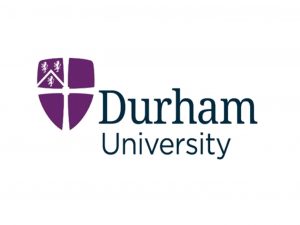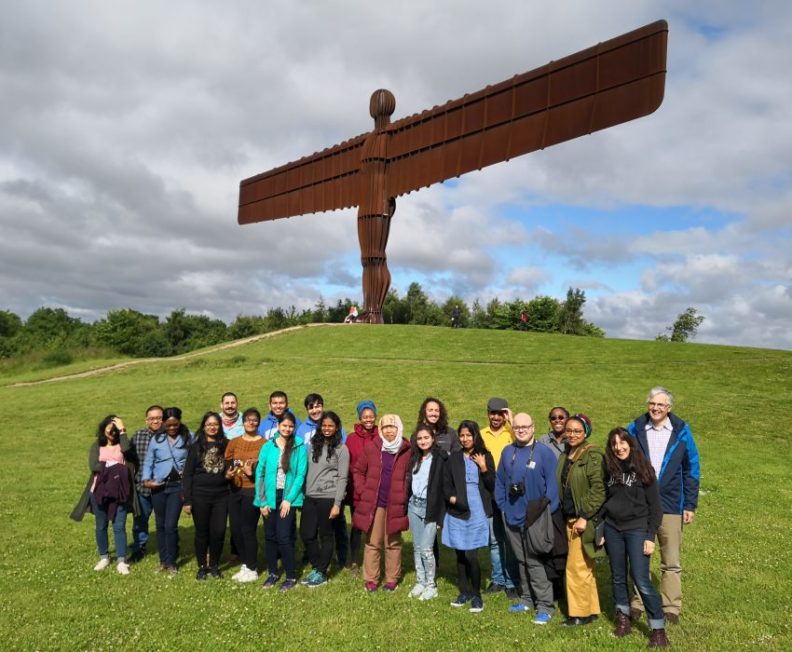SDG Swap

SDG Swap
How much do you know about your fellow GCRF candidate’s projects and their links to the SDG’s?
Contributions by Divya Jain, Anza Shakeel , Raquel Chun , Diana Misir and Thuli Montana
Towards the end of 2019 a few of the GCRF Candidates gathered for an SDG SWAP. This session was aimed at learning more about the PhD projects being conducted by some of the members of the GCRF cohort. At that stage of our PhD journey we had explained the premise of our projects to several individuals and we collectively agreed that talking about our projects can sometimes seem tedious and confusing, however about 10 months into our projects, many of us had done literature reviews, preliminary fieldwork and pilot studies allowing us to feel more confidence when explaining what exactly we are working on.
Through participating in the SDG Swap we stepped back from our individual projects and actively listened to what others are working on. While listening we also aimed to take note of what we found most fascinating about our colleague’s projects, what challenges we see for resolving this project and its associated SDG targets and finally the key contribution each project would make within the academic and policy space.
The cross-cutting nature of the SDG’s allowed us to think broadly about the need and relevance for each project discussed during the swap.
Raquel Chun’s project on ‘Maya subsistence farmer decision-making under climatic uncertainty in Central America’ seeks to address SDG 1- no poverty, 2-zero hunger and 13 on climate action. Raquel spoke about the challenge of working with small-holder farmers, yet the importance of investigating the impact of climate on subsistence farming is paramount especially relating to food and economic security of these farmers. Being of Maya descent herself potentially endears her to participants who have welcomed her into their life and are willing to share their life lessons and experiences with maize farming.
Divya Jain’s project is titled ‘A whole lifecycle approach to solar PV in India, managing the operation, end-of-life and recycling’ it seeks to mainly address SDG 7- affordable and clean energy, 12- responsible consumption and production and 13- climate action. This project will develop a methodology for the successful management of waste and resources resulting from end-of-life solar PV systems. This is estimated to be on the scale of 5-6 million tonnes pa by 2030-2050. Divya mentioned this research will have direct relevance to solar PV industry, supply chain, balance of system manufacturers, installers and other commercial actors. India’s waste management policy and regulation continues to undergo challenges making this research highly pertinent for sustainable energy alternatives.
Anza Shakeel’s project on ‘Using machine learning and satellite radar to detect “silent” earthquakes in the Zagros Mountains, Iran’ seeks to address SDG 3- good health and well-being, 9-industry, innovation and infrastructure and 11-sustainable cities and communities. She spoke about the threats Iran faces from silent earthquakes and the fundamental role computer science and machine learning can play in identifying these aseismic earthquakes which are undetected.
Thuli Montana’s project on ‘The politics and ethics of water security in Cape Town, South Africa’ seeks to address SDG 6- clean water and sanitation and SDG 11- sustainable cities and communities. While Cape Town’s water crisis was averted through water restrictions and citizen’s responsible use of water, Thuli spoke about how water governance in the City of Cape Town is still a challenge which requires further research considering the impacts of climate change and underlying political issues which affect people living the city differently based on social class, race and gender.
Diana Misir’s project looks at ‘Understanding the impact of climate change on water and food security in Guyana’ this project seeks to address SDG 2- zero hunger and 13- climate action while producing information to support SDGs 1, and 8 . During the session Diana reflected on the fieldwork she’s done highlighting the interest of indigenous communities in participating using the citizen science approach by monitoring the water levels in wells throughout the Rupununi Savannahs of Guyana, collecting water level information for modelling the ground water availability throughout the seasons. The communities of the Savannahs practice subsistence, rainfed agriculture, so understanding the water regime is important to them as the surface water sources tend to run out in long dry seasons.
The SDG’s have proven to be a useful framework for us to anchor our projects within global development needs. As we continue our research we are mindful of the 2030 timeline and the research and policy needs that our projects can contribute towards.
As we slowly approach the second year of our PhD journey’s many of us are aware of the complexity and challenges that come with conducting fieldwork and fulfilling our personal research and development ambitions. Being part of the GCRF cohort has allowed us to share and learn from each other’s experiences and as we enter 2020, we are we take pride in knowing that we are still on this journey together.
By Thuli Montana

